Pathways to Creative Youth Work - Part 1
A Two-Activity training project realising a systematic approach to developing creative youth work and understanding progression towards working with young people utilising the arts.
Summary
Pathways to Creative Youth Work is a two-part training course realised in Italy/Sardinia and Germany. It aims to increase the effectiveness of youth work practice by helping those working with young people to develop and use creative skills and arts-based methods, such as stories, music, visual arts, and theatre.
The course follows a systematic approach structured around an adaptation of Steven Covey's "7 Habits" model, specifically tailored for youth work and uses experiential learning, non-formal education, and reflective practice.
The course is designed for a range of professionals including youth leaders, social workers, artists, and educators interested in using creative methods. Participants' learning outcomes are recognized through tools like Youthpass and a badge-based accreditation system. The overall aim is to equip participants with the skills and confidence to make their youth work more effective, engaging, and creative.
What is “Pathways to Creative Youth Work”?
How do we become youth workers? How can we use creativity, the arts and being proactive in our youth work to work with young people? How can we become more creative in our responses to the challenges in youth work? Do you or your organisation have ideas for arts-based youth projects but no idea if you have the skills to do them? How can your organisation develop the skills to support staff and volunteers on the next Youth Exchange? How can your organisation develop the habits that will help you to improve your youth work practice?
If these are some of the questions facing you or your organisation, your volunteers, young leaders and youth workers then ‘Pathways to Creative Youth Work’ could be the answer.
Course Aims & Objectives
This is a training exploring creativity to increase effectiveness in youth work focusing on:
The content and intention of creative youth work, and how we structure creative ideas developed from youth participation, to fit into the model of effective habits, developed by Steven Covey.
The role of youth workers in presenting creative ideas and challenges to young people using: stories, music, visual arts, and theatre.
The use of the creative media in developing rapport, attention, building relationships with young people.
The main aim is to develop awareness and understanding of how creative processes can be harnessed to make our youth work even more effectively, and to explore how these competences can be applied in an Erasmus+ context. The training will be realised using a range of experiential learning opportunities, non-formal educational approaches and a wealth of youth work theory, a 7-Habit model for effective living and practice to actively engage and develop creative skills.
COURSE OBJECTIVES
To develop awareness and build on a greater understanding of how we can use creative skills and processes in our youth work.
To explore and understand the effects of effective creativity in the youth work role.
To gain a greater awareness of the practices we can use in creative youth work and how they can be extended to other aspects of our personal and professional lives.
To identify and realise the opportunities to put creative youth work skills into effective practice.
To follow the recognition pathways offered through Youthpass, badge based learning & the ETS YW framework of competences.
To explore the opportunities for realising participants.
Target Groups
If you:
- are looking for that next step towards becoming a youth worker
- want to integrate your creative skills into youth work
- want build your own competencies and those within your organisation and create international opportunities for progression
- want to gain a greater awareness of creativity and the arts in youth work
- want to experience and better understand non-formal educational methods
Who can apply?
- Youth leaders,
- Youth and social workers,
- Artists and creatives working with young people,
- Educators, and all those who have a professional interest in the field of education and youth work.
- 18+ and working with young people.
We have no maximum age restrictions. as we believe that a group with a diverse age range will provide a rich variety of perspectives and experiences, which will give added value to the training experience.
The shared language for the training will be English, so you should feel comfortable to be able to communicate with the group in English.
PLEASE NOTE: This is a two part course and we expect participants to be able attend both parts of the training.
Partners & Participating Countries
Participants who are resident in one of the following countries are eligible to apply:
| Partner Organisation | Country | # Participants |
| Kare ry | Finland | 2 |
| Beasily | Germany | 4 |
| Hangolda Egyesület | Hungary | 2 |
| Midlands Regional Youth Service | Ireland | 2 |
| Associazione Interculturale NUR | Italy | 4 |
| Agenzija Sapport | Malta | 3 |
| Bright Group | Netherlands | 3 |
| Wyspa | Poland | 2 |
| BalkanIDEA Novi Sad | Serbia | 2 |
| Društvo Center za pomoč mladim | Slovenia | 2 |
| Asociación Socio-Cultural Papaya | Spain | 3 |
| Pancar Derneği | Türkiye | 2 |
If you require information in your local language please contact the partner listed above.
Course Background
This Pathways to Creative Youth Work training represents an evolution of previous successful training editions. The current programme builds upon the knowledge and experiences gained from earlier iterations,"Pathways to Youth Work" in the Netherlands (2015-16) and "Pathways to Youth Leadership" in Sardinia & Serbia (2018-19). Additionally, an Impact Seminar in Germany (2021), and "The Power of Pathways," contributing to discovering the legacy of these earlier trainings. Facilitators, along with past participants and partner organisations, provided feedback that informed the upgrading and introduction of new elements for this current edition, with a specific focus on the creative elements of development and practice.
The approach itself has been informed by models like the UK Youth Achievement Awards, Think Forward’s Cultivate Leadership programme, and Breakthrough’s model ‘Effective Youth Leadership Badges’. Key individuals involved in designing the original "Pathways" programme, such as Buzz Bury and Steve Burns, are part of the current delivery team, alongside an alumni participant, Rebecca Schlißke.
Several partner organisations involved in the current project have also participated in previous editions, seeking to continue developing their youth workers' and volunteers skills and enhance their youth work practice through creative exploration.
Our Approach and Working Methods
Pathways to Creative Youth Work utilizes a diverse range of working methods and approaches rooted in non-formal education and experiential learning. The methods are designed to be inclusive to accommodate a range of learning styles, highly interactive, and participant-centred.
The overall aim of this approach is to ensure the youth work training is more effective and engaging, particularly by focusing on the creative aspects of youth work. The training is designed to actively engage and develop participants' creative skills.
Key principles and theories underpinning the working methods include:
- Non-formal education principles and theories.
- Experiential learning.
- Reflective practice.
- Group work.
- Self-directed learning.
- Collaboration, participation, and sharing.
The methods have been developed and refined over many years through previous editions of the "Pathways" project.
The team of trainers has extensive experience in these methods.
The training course covers an array of creative and informal techniques to make this a unique and wonderful personal and professional development opportunity. We believe the biggest benefits are specifically targeting the ETS Youth Work competencies. The ETS Youth Work Competence model with it’s multi-dimensional approach, divides each competence area into attitudes, knowledge, skills, and behaviours.
Training team
The training team for 'Pathways to Creative Youth Work' is a highly experienced group with a diverse range of expertise directly relevant to the course. They bring a combined experience of over 50 years in education and youth work as well as international training.
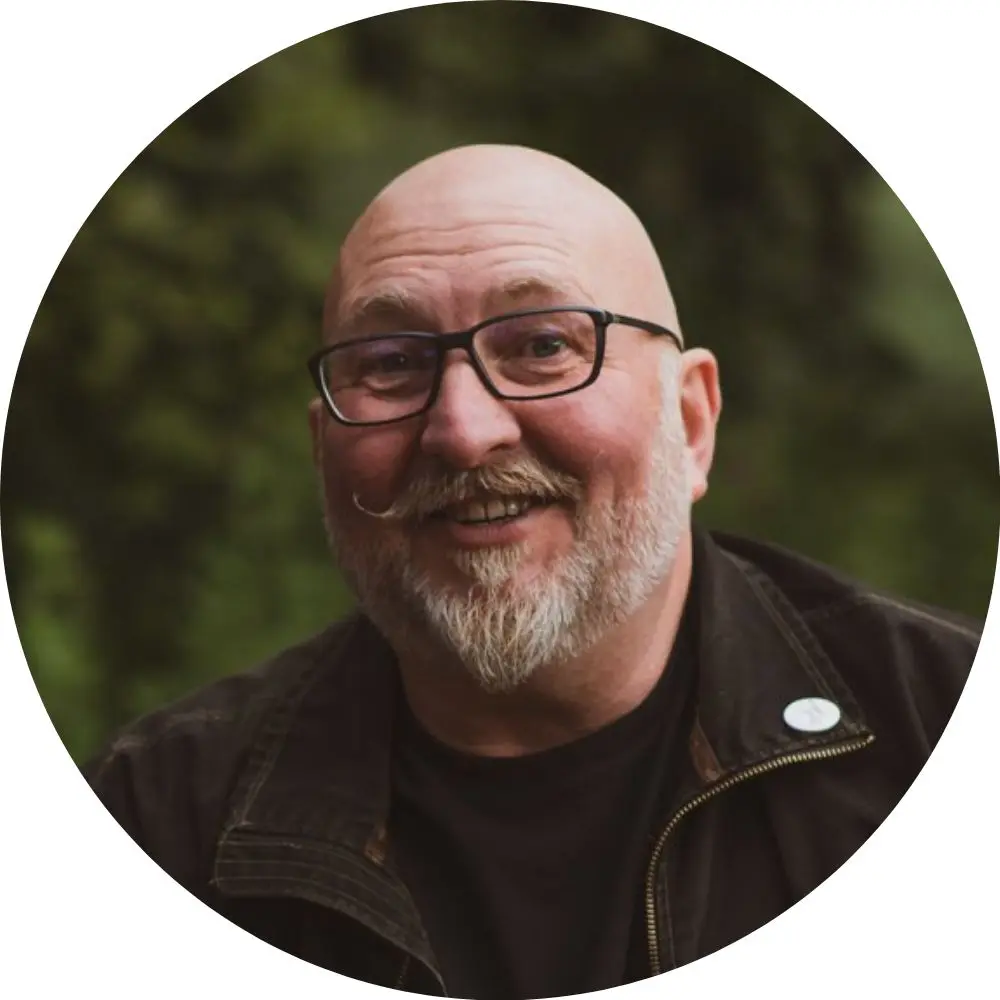
Buzz Bury
Course Designer, Trainer
Buzz is a professionally qualified Youth & Community Worker and international trainer with over 40 years of experience. He was part of the original team that designed the "Pathways" programme. Buzz is a "creative meddler" who uses art and creativity to engage others. He is a UK Arts Award practitioner, trainer, and moderator and experienced in the European Youth Programme. Buzz is also active in open badges and learning recognition. He will be a lead facilitator and trainer.
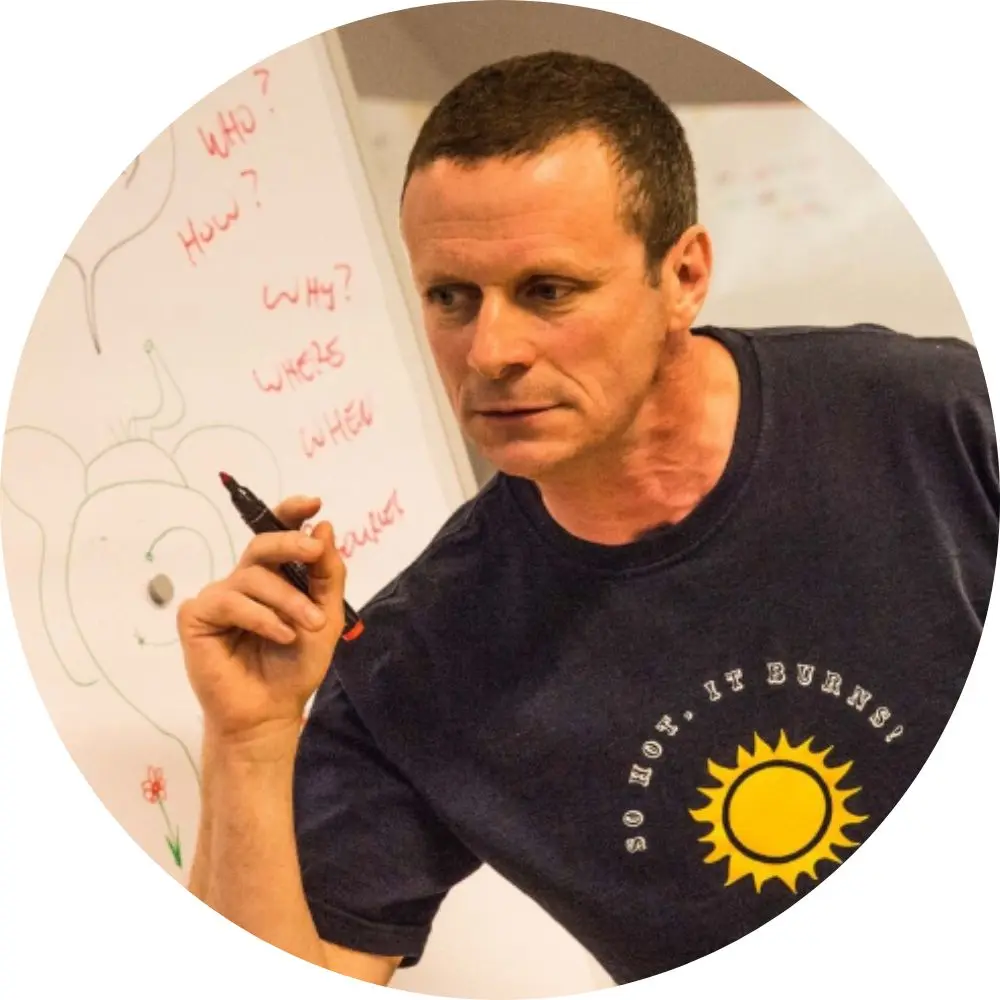
Steve Burns
Course Designer, Trainer
Steve is a qualified Youth & Community Worker, trainer, and therapist. He is a co-founder of Think Forward CIC. Steve has over 35 years of experience in the youth field, with a deep commitment to non-formal education. He has extensive experience working with young people facing significant challenges, including those with learning disabilities, excluded from education, and homeless young people. Steve was also part of the original "Pathways" design team and is a lead presenter and trainer.
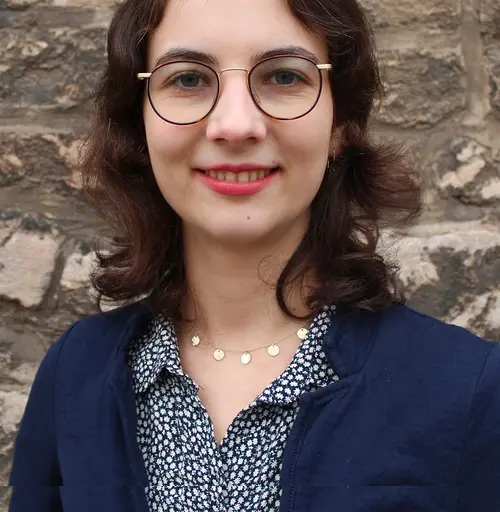
Rebecca Schlißke
Trainer
Rebecca is the trainee facilitator and trainer and a young-adult led activist. Crucially, she was a participant in the very first "Pathways" training and the driving force behind the “Power of Pathways” Seminar. She has since gained wide experience in Erasmus+ projects and is passionate about ensuring other young people get similar international learning opportunities. Rebecca is passionate about growing youth work and good practice and has experience of digital recognition and accreditation.
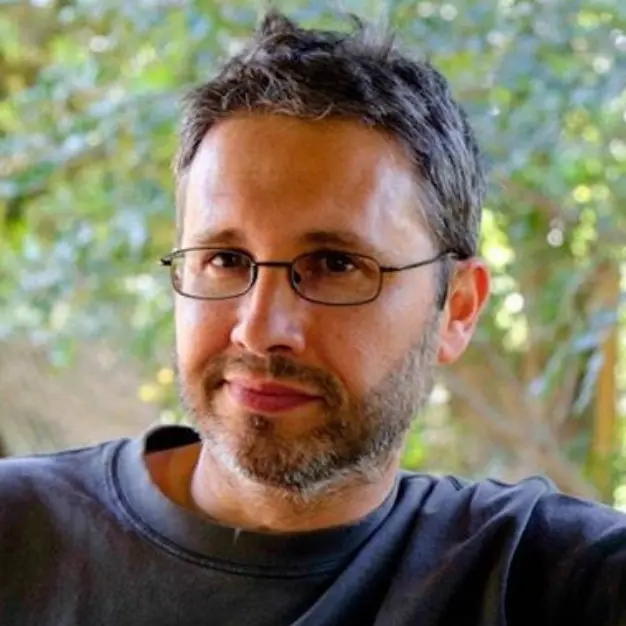
Alexandro Jan Lai
Partner & Logistics
Jan is an experienced international trainer working in the field since 1997. Jan was involved in the second edition of "Pathways" and will be responsible for hosting and logistics in Sardinia. He is a founding member of the International Youth Work Trainers Guild.
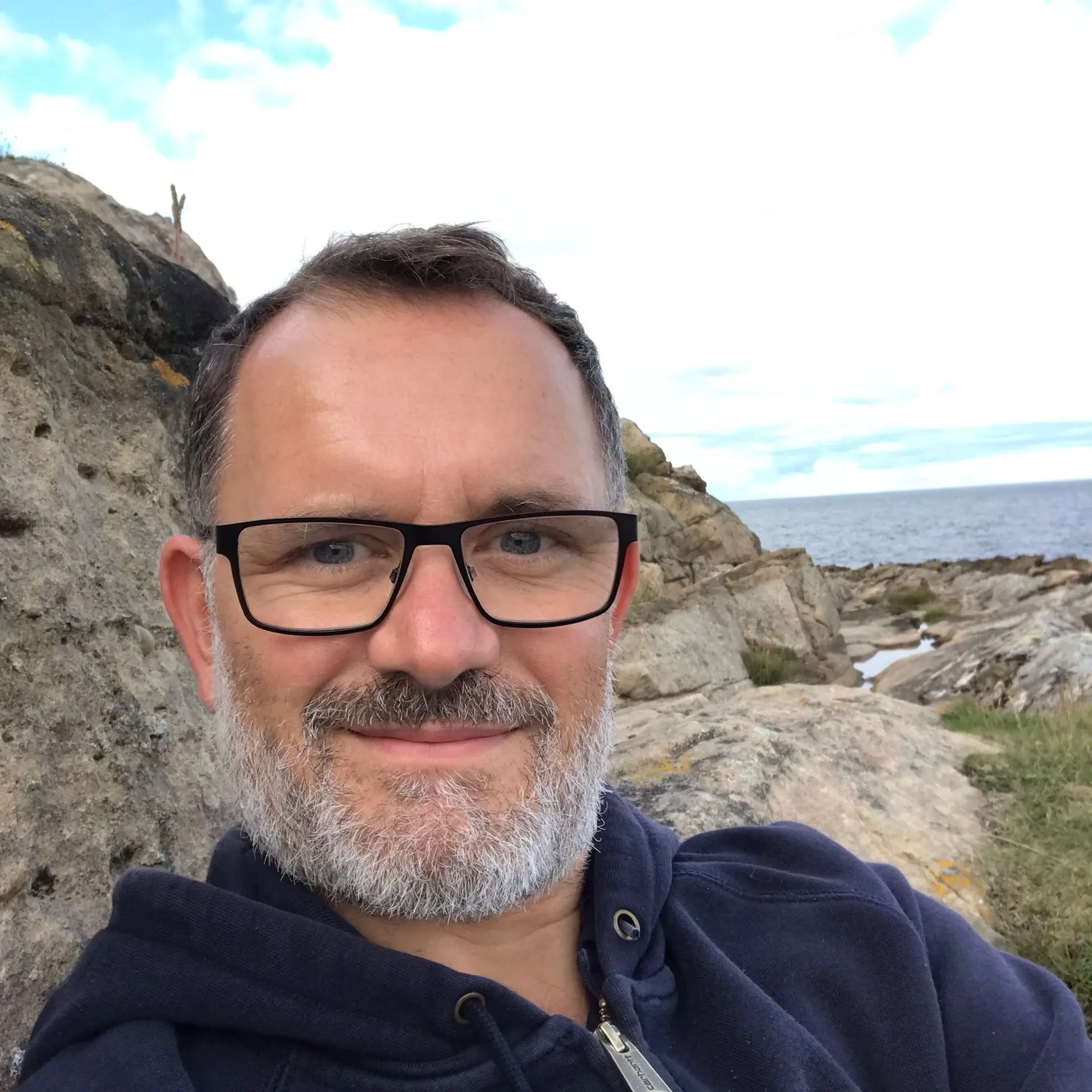
Ollie Clubb
Project Coordinator
Ollie is the Project Coordinator and founder of Beasily. He is an international community music specialist with vast experience co-creating music with young people. Ollie empowers people to create without judgment. Ollie has now participated in a variety of international learning opportunities as well as supported the logistics and administration for a range of Erasmus+ trainings.
The team's collective experience includes deep familiarity with the Pathways model, expertise in creative methods, a comprehensive understanding of youth work practice, commitment to non-formal learning, and a focus on practical application.
Costs
We are very thankful that the project has been financed by the Erasmus+ programme.
Accommodation and food
The costs related to accommodation and food and travel are funded by Erasmus+ and co-funded by participation fees.
Breakfast, Lunch, Dinner and breaktime refreshments and snacks will be provided.
Travel Costs
The travel costs will be covered according to the Erasmus+ standards up to the following amounts:
Part 1 Sardinia - Travel Reimbursements
| Country | E5 Green Travel | E2 Travel | Max Reimbursement |
| Finland | €205.00 | €580.00 | €785.00 |
| Germany | €108.00 | €309.00 | €417.00 |
| Hungary | €108.00 | €309.00 | €417.00 |
| Ireland | €140.00 | €395.00 | €535.00 |
| Italy | €28.00 | €28.00 | €56.00 |
| Malta | €108.00 | €309.00 | €309.00 |
| Netherlands | €108.00 | €309.00 | €417.00 |
| Poland | €108.00 | €309.00 | €417.00 |
| Serbia | €108.00 | €309.00 | €417.00 |
| Slovenia | €108.00 | €309.00 | €417.00 |
| Spain | €108.00 | €309.00 | €417.00 |
| Türkiye | €108.00 | €309.00 | €309.00 |
Travel costs will be reimbursed separately after completion of Part 1 and Part 2
Part 2 Germany Sardinia - Travel Reimbursements
| Country | E5 Green Travel | E2 Travel | Max Reimbursement |
| Finland | €140.00 | €395.00 | €535.00 |
| Germany | €74.00 | €211.00 | €285.00 |
| Hungary | €108.00 | €309.00 | €417.00 |
| Ireland | €108.00 | €309.00 | €417.00 |
| Italy | €108.00 | €309.00 | €417.00 |
| Malta | €108.00 | €309.00 | €309.00 |
| Netherlands | €74.00 | €211.00 | €285.00 |
| Poland | €108.00 | €309.00 | €417.00 |
| Serbia | €108.00 | €309.00 | €417.00 |
| Slovenia | €108.00 | €309.00 | €417.00 |
| Spain | €108.00 | €309.00 | €417.00 |
| Türkiye | €108.00 | €309.00 | €417.00 |
Travel costs will be reimbursed separately after completion of Part 1 and Part 2
Participation Fee
The participation fee is on a sliding scale 120 Euro per person to 250 euro per person to cover both trainings.
The fee will be paid for by the partner organisation and reclaimed from the participants at the beginning of the course.
- Students and unemployed individuals - 120 Euro
- Part time workers -200 Euro
- Full time workers -250 Euro
Host and Organiser
Beasily is a creative organisation, founded and based in Germany. We work nationally and internationally with young people, youth workers and those working creatively with young people through the arts to realise a range of music, theatre and creative engagement projects.
AssoNur is our partner for the Sardinian training activity to be hosted in Sardinia. The Intercultural Association NUR is a non-profit organisation engaged in the fields of non-formal education and interculturality , and promotes cultural events, training experiences and channels for the dissemination of information for young people in Sardinia.
Dates & Location
This is a two part course run in two countries on different dates with some online participation self directed learning.

Training Part 1
Sardinia, Italy - 7th to 14th November 2025
Oasi Francescana Laconi, Via Cuccuru e Monte, 09090 Laconi OR, Sardinia, Italy
Maps
Applied Practice
November 2025 - May 2026
self directed Learning and applied practice phase. Including on-line reflection and badge-based learning recognition and accreditation.
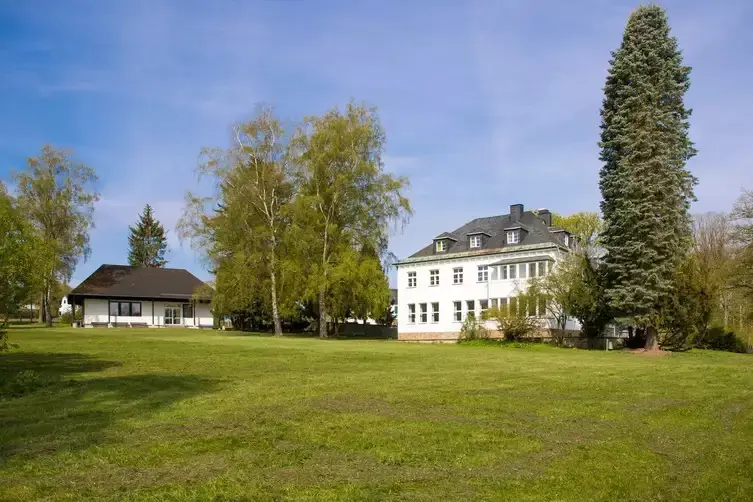
Training Part 2
GERMANY - 5th to 13th May 2026
Evang. Freizeitheim Untertiefengrün, Mühlberg 2, 95180 Berg, Germany
MapsThe accommodation will be in shared dormitory-style rooms at both venues. All bed linen and towels will be provided.
*Please Note: that the venues for both residential trainings are not currently wheelchair accessible. We acknowledge this may impact participation for some individuals and sincerely apologise for any inconvenience this may cause. If you have any specific accessibility needs, please include in your application form so that we can take this into consideration.
Our group will be responsible for living together during the course. It is a normal part of our educational approach and encourages community spirit, responsibility and sharing. Everyday tasks will be shared by participants, as part of the "sustainable living" experience.
APPLICATION FORM
In order to apply to the training course, please fill the following application form by following this link:
APPLICATIONS NOW CLOSED
Application deadline
Applications must be submitted by 01.08.2025, selection of participants will be made by local partners and results will be communicated via email no later than 29th August 2025
PLEASE NOTE: This is a two part course and we expect participants to be able attend both parts of the training.
We will list relevant questions here
No. Anyone can apply for this course. Our local partners will select the participants with us
Questions?
If you have any questions you can contact the partner in your country or send a message to:
Erasmus+ Information

Dieser Kurs wird durch das Programm Erasmus+ der Europäischen Union finanziert.
Weitere Informationen zu Erasmus+ finden Sie unter: http://erasmus-plus.ec.europa.eu/
- Form ID: KA153-YOU-AEA1E338
- Action Type: KA153-YOU - Mobility of youth workers (KA153-YOU)
- Project Title: Pathways to Creative Youth Work
- Project Acronym: BE-PTCYW-24
PATHWAYS NEWS
Get more info, news and particpant reports and from the course

